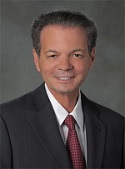As signaled in the second-quarter earnings call, AbbVie's ($ABBV) received approval in Japan for Viekirax, the oral interferon- and ribavirin-free combination therapy for hepatitis C, establishing an important beachhead for the company in Asia's top reimbursement market.
 |
| AbbVie CEO Richard Gonzalez |
In late July, Rick Gonzalez, chairman and CEO of AbbVie, put Bristol-Myers Squibb ($BMY) and Gilead Sciences ($GILD) on notice that approval for hepatitis C therapy in Japan is expected in the second half of the year.
"Our virology franchise will be a significant growth driver for us in 2015 and in the years to come. With the launch of Viekirax, we have established a meaningful position in the HCV market. We continue to see progress, particularly internationally, which is tracking ahead of our planning assumptions," Gonzalez said.
"We received approval in 47 markets and we expect a number of additional countries to come online as the year progresses and into 2016. This includes Japan where we continue to expect a regulatory decision during the second half of this year. As a reminder, in Japan, we will commercialize a 12-week two pill once-a-day ribavirin-free combination."
The key for AbbVie, which announced the approval in a press release, will be the reimbursement price expected in the coming weeks and the comparison to Gilead's Harvoni combination therapy aimed at genotype 1 patients.
Gilead also won Sovaldi approval earlier this year--the first all-oral therapy for genotype 2 use in combination with ribavirin--with the reimbursement price set at about $515 per daily dose.
The regimen requires 12 weeks of doses, so the government would have to shell out more than $43,000 per patient, the patient with a copay of about $335 for the full regimen.
At the time in May, according to Barron's, Japan was said to have 29% of the world's hepatitis C patients, or 1.1 million, and counts 216,050 with genotype-2 hep C, the specific type treated by Sovaldi. If all of them opt for Sovaldi, that means sales to U.S.-based Gilead of more than $9 billion, according to Barron's math.
Nikkei however used different numbers, and says Japan has about 2 million people with the virus, and nearly one-third of them have the gen-2 type treated by Sovaldi. That would put Gilead's potential market size in the neighborhood of 665,000 patients. If 500,000 patients opt for the drug, Nikkei added, the cost of the drug would be nearly $17 billion.
BMS also faces competition in genotype 1 from the approval as well, as also highlighted in the July earnings call by Giovanni Caforio in his inaugural call as the company's CEO.
"Going forward, we expect competitive launches later this year to affect our business, particularly in Japan," Caforio said on the second quarter call. "That said, we will continue to execute our HCD strategy, focused on addressing the needs of specific, challenging to treat HCD patient populations, which may vary by market."
Charlie Bancroft, chief financial officer at BMS, shed a bit more color on Caforio's remarks on the company's two-pill daily all-oral, interferon- and ribavirin-free regimen Daklinza and Sunvepra.
"Hep C sales performance in Japan were strong, but as you know the competitive landscape continues to evolve."
In Japan, the most common form of hepatitis C is genotype 1, which is a key point for Viekirax. Other treatments approved in Japan include Merck's ($MRK) Vanihep and Janssen Pharmaceuticals Sovriad used with pegylated interferon and ribavirin.
Mitsubishi Tanabe Pharma's Telavic, licensed from Vertex Pharmaceuticals ($VRTX), is approved for genotypes 1 and 2.
- here's the release